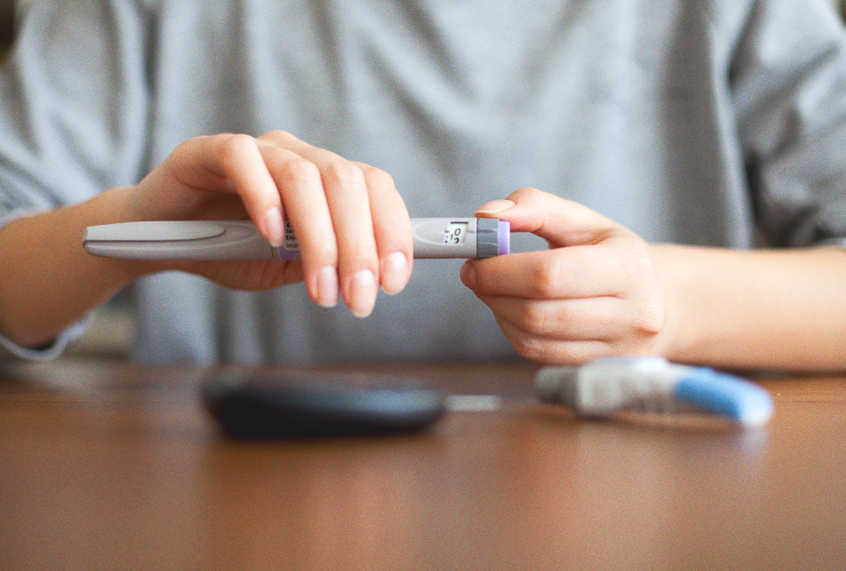Diabetes is one of the most common diseases in the United States: nearly 1.5 million cases of diabetes are diagnosed each year in America. Moreover, according to the American Diabetes Association, diabetes ranked seventh among leading causes of death in the U.S. in 2015. Yet in the past few years, there is growing debate over whether or not the chronic disease — specifically, type 2 — can be “reversed.”
You might have seen the headlines: both the Guardian and The New York Times published stories that claimed type 2 could be “reversed”; meanwhile, the Joslin Diabetes Center at Harvard Medical School has an article stating definitively the opposite. The truth is more complicated and speaks to the complexities of research and the tendency of the news media to sensationalize small (yet still sound) scientific studies.
First, some background for those who are fortunate enough to not be affected by diabetes: Type 1 diabetes occurs when the pancreas produces little to no insulin. Type 2 diabetes is when one’s body either resists or does not produce enough insulin. (Insulin is a hormone that manages the glucose level in the body.) Type 1 cannot be reversed; there is not much debate around that, although there is a startup purportedly trying to cure it. Yet there are conflicting theories over whether type 2 can be reversed — though it is pretty well-established that it can be managed through diet and exercise.
Considering one in three adults are at risk for the disease, according to the Centers for Disease Control and Prevention (CDC), it should come as no surprise that Silicon Valley sees a chance to capitalize on diabetes treatment. Recently, multiple ventures have popped up in the biotech world, some of which make provocative claims. Case in point: Virta Health, a San Francisco-based startup that raised $45 million in their last round of financing and aims to reverse diabetes through a mix of a nutritional intervention, nutritional ketosis and machine-learning. (Nutritional ketosis is the process in which fats and ketone fuel your body, instead of carbohydrates; it is similar to the ketogenic diet known as “keto.”)
According to a study the tech company funded, which was published in the SpringerLink journal and peer-reviewed, a “novel metabolic and continuous remote care model can support adults with [Type 2 diabetes] to safely improve HbA1c, weight, and other biomarkers while reducing diabetes medication use.” In other words, there was some success in using this method to “reverse diabetes” — which, by Virta’s standards, means lowering HbA1c level, the marker to measure glucose concentration, to below 6.5.
“I think what a lot of conventional diabetes care focuses on is the management of the disease, to continue to take your medications and hope to slow the consequences,” James McCarter, MD PhD, Head of Research at Virta Health, told Salon. “We don’t believe that is correct, we believe you can achieve reversal.”
But there is a caveat.
“We don’t mean that it is a cure and you can do whatever you want and be fine,” he added. “We recommend that people stay in nutritional ketosis, maintain dietary changes long-term and make permanent lifestyle changes.”
Virta Health is not the only startup trying to reverse the disease. Semma Therapeutics, a startup that aims to cure type 1 diabetes, has raised over $100 million for stem cell therapy research.
Michael German, a professor at the Diabetes Center at the University of California, San Francisco, said achieving true “reversal” of type 2 diabetes is unlikely.
“You can improve your blood sugar, with diet and exercise, but the underlying propensity for type 2 diabetes does not go away,” he said. “As soon as you stop [lifestyle changes], it will come right back.”
Dr. German also warned that a lot of the success in managing diabetes depends on the patient’s genetic propensity. He explained that it is easier for someone with an early onset of diabetes to manage the disease without medication than it is for someone who has had it for years. In both cases, he says a change in diet and adding exercise to one’s lifestyle can always help someone who has the disease.
This is not meant to be a he-said, she-said account. Indeed, German and McCarter are saying basically the same thing about how patients can manage their diabetes, even if they disagree about what “reversal” means and if it is possible.
In an interview with Healio in 2014, researcher Yann Klimentidis, PhD, assistant professor of epidemiology at the University of Arizona’s Zuckerman College of Public Health, wrote: “The bottom line is that, although this area of research is still in its infancy, prevention and treatment measures for type 2 diabetes could eventually be more precisely tailored to an individual’s genetic profile.”
And perhaps that is what researchers and doctors should be aiming for: the “third way” of individual treatment plans, rather than hype over a diabetes “cure” or “reversal” that doesn’t really mean that the disease is gone forever.


